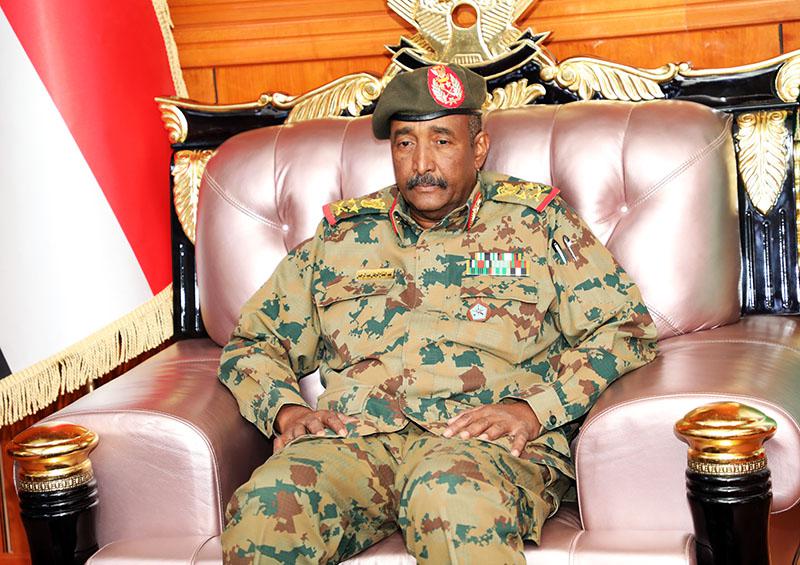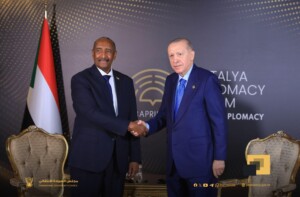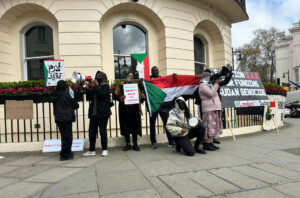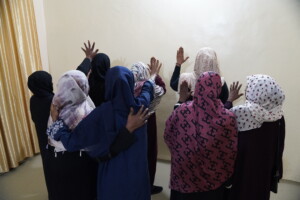Amid rumours of an agreement between the Forces of Freedom and Change (FFC) and the military junta over Sudan’s transition from dictatorship, coalition spokespeople have reported strong resistance to any form of impunity for the country’s military, paramilitary, security, and police forces.
Professor Siddig Tawir, former member of the Sovereignty Council and a leading member of the Socialist Ba’ath Party Sudan, said that the number of member groups of the mainstream FFC that are in favour of an agreement with the military junta is limited. He added that any notion of an agreement "finds wide resistance within the coalition itself and on the streets" of Sudan.
He denied the existence of any dialogue between the mainstream FFC and the military junta.
In an interview with Radio Dabanga, Tawir said that the only way the coalition sees a possibility for reaching an agreement is if they guarantee continued impunity for the military, paramilitary, security, and police forces.
“The military junta should be overthrown, after which we can prepare for a new transitional phase.” – Professor Siddig Tawir
“The common vision is that the military junta should be overthrown, after which we can prepare for a new transitional phase,” he said. “This vision does not include any guarantees of impunity and rejects any presence of the military in power structures, politics, and transitional arrangements.”
The recent FFC Political Conference reiterated that there are to be no negotiations nor guarantees of impunity, he stated. “The FFC do not have any right to waive the rights of the Sudanese people and the rights of the families of the martyrs.”
He questioned the seriousness of the military promises that they would withdraw from the political scene or step down from power.
Various rebel movements and protest groups, including the FFC and the Resistance Committees of Khartoum, initially refused to participate in the initiative or take part in any dialogue with the military coup authorities and those who support them as they fear that this will legitimise the coup.
Lawyer El Sadig Ali Hasan, Chairman of the Board of Trustees of the Darfur Bar Association (DBA), stressed “the uselessness of any settlement” between the FFC and the military junta regarding exemption from accountability for the crimes committed since the violent dispersal of the Khartoum sit-in on June 3, 2019.
He told Radio Dabanga that “it is not legally possible for any party to replace accountability for a crime by private rights, in particular in crimes related to the right to life”.
“El Burhan speaks with several tongues. He cannot be trusted, and the street knows this all too well.” – DBA Lawyer El Sadig Ali Hasan
He claimed that a dialogue is taking place behind closed doors, of which the contents are unknown. “No deals will arise from it,” he said. “El Burhan speaks with several tongues. He cannot be trusted, and the street knows this all too well.”
Saudi newspaper Al Sharq Al Awsat reported on Friday that Sudan is awaiting an announcement “in the next few days” about a final agreement between the FFC and the military junta.
The newspaper said that the sides were “close to reaching an agreement on the formation of a government of technocrats headed by a civilian prime minister, in addition to the head of a civilian Sovereignty Council.” Gen Abdelfattah El Burhan and Gen Mohamed ‘Hemeti’ Dagalo will retreat from the Council, and will remain commander of the Sudan Armed Forces and commander of the paramilitary Rapid Support Forces respectively, according to the report.
Throughout October, rumours have been circulating regarding an imminent agreement between the military and civilian counterparts. The mainstream FFC has received criticism from other opposition groups because of their sympathy towards a power-sharing government with the military.
FFC leading member and former Cabinet Minister Khaled Omar Yousef, denied the existence of such a dialogue.
In a post on his Facebook page, he described talks about an upcoming bilateral settlement with the military as “sheer nonsense”, explaining that “a political solution requires participation by as many of the forces of the revolution and transition as possible.”
Yousef also said that “the only political solution that we will accept is the one that leads to a complete and real civil authority, one that distances the military institution entirely from politics.” He added that there must be security and military reform to build a single and professional national army, as well as a transitional justice process that leads to free and fair elections at the end of a maximum two-year transitional period.
“The only political solution that we will accept is the one that leads to a complete and real civil authority.” – FFC member Khaled Omar Yousef
Prominent human rights lawyer Nabil Adib told Radio Dabanga on Sunday that the issue of transitional justice, which is based on the perpetrator's acknowledgment of wrongdoing in exchange for the victims' acceptance of truth and reconciliation, must be discussed first among the victims and their relatives.
He explained that accountability for crimes does not necessarily mean conviction, but rather the prosecution of people whose involvement is proven, with the right to self-defence.
Adib urged the pro-democracy groups to join the negotiations and to continue their talks with the military “to reach an agreement on constitutional arrangements that will restore civilian rule”.
In Sudan, there is plenty of sceptisism around the military’s announced ‘withdrawal’. On October 5, Sudan’s Resistance Committees and Coordination Committees activated a separate document, the Revolutionary Charter for the Establishment of the People’s Authority.
 Chairman of the Sovereignty Council, Commander-in-Chief of the Sudan Armed Forces and leader of the October 2021 coup d’état, Abdelfattah El Burhan (File photo: SUNA)
Chairman of the Sovereignty Council, Commander-in-Chief of the Sudan Armed Forces and leader of the October 2021 coup d’état, Abdelfattah El Burhan (File photo: SUNA)











 and then
and then